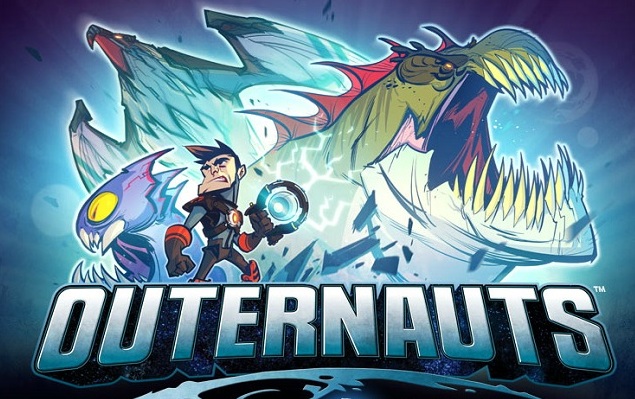The only marketing slogan Outernauts needs is this simple, three-word phrase: Pokémon in space. If that doesn’t capture the attention of the 13- to 25-year-old demographic that Insomniac Games is shooting for, then nothing else will.
[aditude-amp id="flyingcarpet" targeting='{"env":"staging","page_type":"article","post_id":494211,"post_type":"story","post_chan":"none","tags":null,"ai":false,"category":"none","all_categories":"games,","session":"C"}']And now everyone can try Outernauts for themselves as Insomniac Games chief executive Ted Price quietly announced yesterday that the developer’s first social game is in open beta.
Together with the still-in-development PlayStation 3 and Xbox 360 shooter, Overstrike, Outernauts is part of the studio’s expansion to develop on other platforms. Although an independent developer since it’s inception, Insomniac Games has previously created content exclusively for PlayStation consoles, resulting in memorable series like Spyro the Dragon, Ratchet & Clank, and Resistance: Fall of Man.
In Outernauts, you are recruited to Earth’s elite squad of space explorers, and your goal is to rid the galaxy of villainy and corruption with the help of wild beasts that are found on different planets. At the beginning of the game, you are given a choice of starter creatures to choose from, which, like in Nintendo’s Pokémon games, represent different elemental types: water, earth, lightning, fire, and ice.
These animals can visibly evolve into stronger versions of themselves as they earn experience from turn-based battles. In lieu of Pokéballs, you have access to Gravity Orbs (which you can buy with in-game currency) to capture weakened beasts in the wild.
Outernauts also places a strong emphasis on exploration and minor resource management. New planets will gradually open up upon completion of your quests, but they can only be visited if you have enough fuel for your ships (which can be bought with in-game currency or harvested from visiting the home planets of your friends). You can also craft items found during your adventure into new things.
The social aspect is thankfully not as intrusive as with other Facebook games, and when it does prompt you to share your spoils, it’s always optional. It even gives you an in-game “friend” to start out with, a charming man named Major Stache, whose home planet you can visit whenever you want to see what kind of benefits can be gained from adding real people to your game.
Like other free-to-play social games, however, Outernauts abides by an energy system that depletes upon any meaningful action, such as fighting in battles, taken in the game. Leveling up your Outernaut and completing quests will replenish it from time to time, but if you run out, you’ll just have to wait a few minutes before it regenerates on its own. It took about a half hour on my first playthrough before I completely ran out of energy.
[aditude-amp id="medium1" targeting='{"env":"staging","page_type":"article","post_id":494211,"post_type":"story","post_chan":"none","tags":null,"ai":false,"category":"none","all_categories":"games,","session":"C"}']
For a beta, Outernauts plays rather smoothly, with only a few occasional framerate hiccups here and there. With its comic-book-styled presentation and a proven gotta-catch-them-all gameplay formula, it’s easy to see why Insomniac Games is so confident that Outernauts will be its next big franchise.

